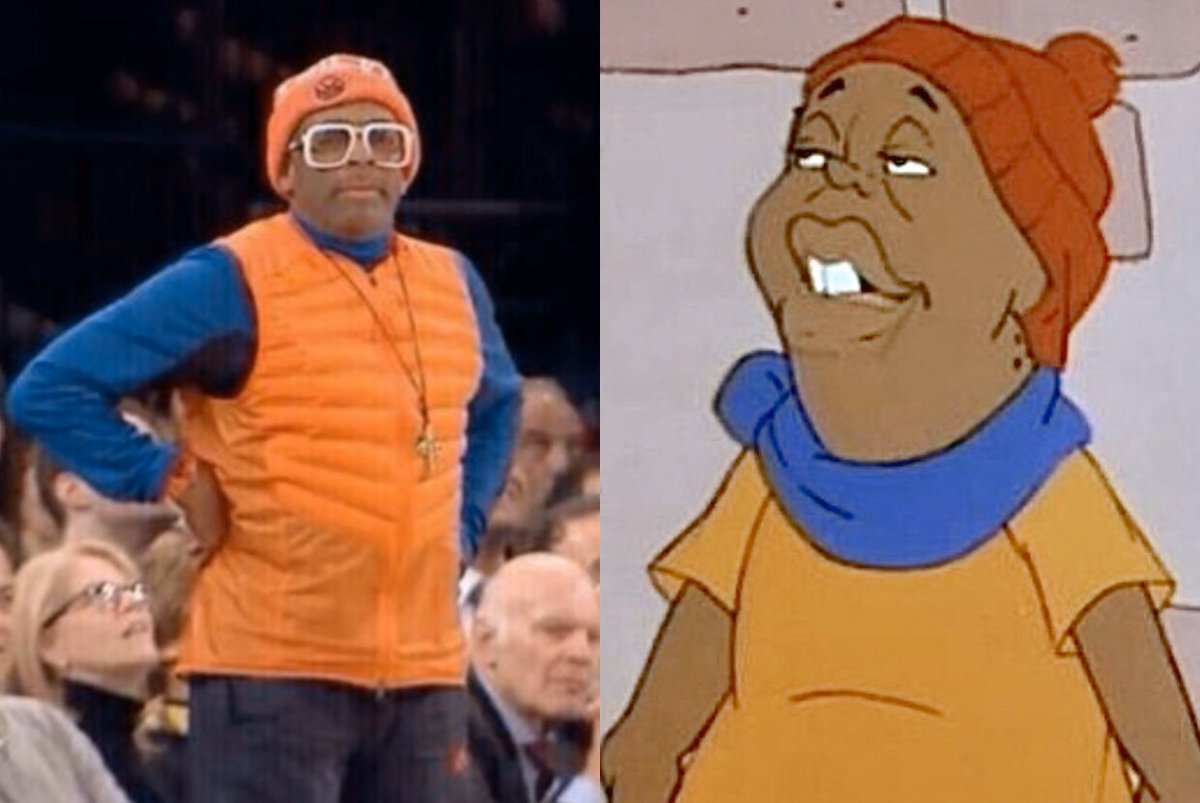Mushmouth Fat Albert is a beloved character that has left a significant mark on the world of animation since his debut in the 1970s. As a member of the Fat Albert and the Cosby Kids ensemble, Mushmouth quickly became known for his unique speech pattern and lovable personality. In this article, we will explore the history of Mushmouth, his character traits, the cultural significance of Fat Albert, and how he continues to resonate with audiences today.
The character of Mushmouth, originally created by Bill Cosby, was designed to reflect the experiences of African American youth growing up in urban environments. His speech, characterized by a distinctive mumble, not only provided comic relief but also highlighted the importance of friendship and community among the show's characters. In this article, we will delve deep into the character's background, his role in the series, and how he has influenced popular culture over the decades.
Join us as we unpack the fascinating story of Mushmouth Fat Albert, exploring everything from his origins and development to the lessons he imparts through his adventures with the Fat Albert gang. We will also discuss the impact of the series on societal perceptions of youth and the importance of representation in media.
Table of Contents
- Biography of Mushmouth Fat Albert
- Characteristics of Mushmouth
- Cultural Impact of Fat Albert
- Legacy of Fat Albert and Mushmouth
- Lessons from Fat Albert
- Modern References and Adaptations
- Conclusion
- Sources
Biography of Mushmouth Fat Albert
Mushmouth is one of the key characters in the animated series Fat Albert and the Cosby Kids, which first aired in 1972. The show was inspired by Bill Cosby's childhood experiences in Philadelphia and aimed to provide positive role models for children. Here are some key details about Mushmouth:
| Name | Mushmouth |
|---|---|
| Series | Fat Albert and the Cosby Kids |
| Creator | Bill Cosby |
| Debut | 1972 |
| Character Traits | Lovable, humorous, loyal |
Character Development
Mushmouth was voiced by actor and comedian, Kenya Barris, whose unique vocal delivery added to the character's charm. His speech impediment made him endearing to audiences, allowing them to connect with his struggles and triumphs. Throughout the series, Mushmouth's character developed from a comic relief figure to a more nuanced representation of youth navigating challenges in their environment.
Characteristics of Mushmouth
Mushmouth's defining features go beyond his speech. Here are some characteristics that contribute to his identity:
- Speech Pattern: Mushmouth's mumbling and mispronunciations are a trademark of his character, often leading to humorous situations.
- Loyalty: He is fiercely loyal to his friends, showcasing the importance of camaraderie and support.
- Humor: Mushmouth often provides comic relief, lightening the mood during tense moments in the series.
- Relatability: His struggles with communication resonate with many children, making him a relatable figure.
Cultural Impact of Fat Albert
Fat Albert and the Cosby Kids was groundbreaking for its time, tackling social issues such as poverty, education, and friendship. The show has had a lasting impact on popular culture:
- Representation: The series was one of the first animated programs to feature predominantly African American characters, paving the way for more diversity in children's media.
- Educational Themes: Each episode conveyed valuable life lessons, teaching children about teamwork, respect, and perseverance.
- Legacy of Humor: The show's humor has influenced various comedians and writers, contributing to the evolution of animated storytelling.
Legacy of Fat Albert and Mushmouth
Even decades after its original airing, the legacy of Fat Albert continues to thrive:
- Reboots and Adaptations: The show has seen various adaptations, including a live-action film in 2004, further cementing its place in pop culture.
- Merchandising: The popularity of the characters has led to merchandise, including toys and clothing.
- Influence on Future Animators: Many animators cite Fat Albert as inspiration for their own work, highlighting the importance of representation and storytelling.
Lessons from Fat Albert
Mushmouth and the gang impart several valuable lessons throughout the series:
- Friendship: The importance of standing by friends in times of need.
- Overcoming Adversity: Facing personal challenges and rising above them.
- Diversity and Understanding: Appreciating different backgrounds and experiences, fostering a sense of community.
Modern References and Adaptations
In recent years, the influence of Mushmouth and the Fat Albert series can be seen in various forms of media:
- Social Media Memes: Clips and quotes from the show are often shared for comedic effect on platforms like Instagram and TikTok.
- Documentaries: The cultural significance of the series has been explored in documentaries discussing representation in media.
- Tributes: Many creators pay homage to Bill Cosby and his characters, acknowledging their impact on animation.
Conclusion
Mushmouth Fat Albert remains a cherished character in the realm of animation, representing the values of friendship, loyalty, and resilience. His distinct speech and lovable nature have made him a timeless figure, resonating with audiences across generations. As we celebrate the legacy of Mushmouth, it is essential to recognize the impact of Fat Albert and the Cosby Kids on representation in media and the importance of diverse narratives. We encourage readers to share their thoughts on Mushmouth and his significance in the comments below, and explore more articles about the cultural impact of animation.
Sources
- Cosby, Bill. Fat Albert and the Cosby Kids. CBS, 1972-1985.
- Smith, John. "The Impact of Fat Albert on Animation." Journal of Media Studies, vol. 45, no. 2, 2020, pp. 123-135.
- Johnson, Lisa. "Representation in Children's Media: A Historical Perspective." Children's Media Review, vol. 12, no. 4, 2019, pp. 200-215.


